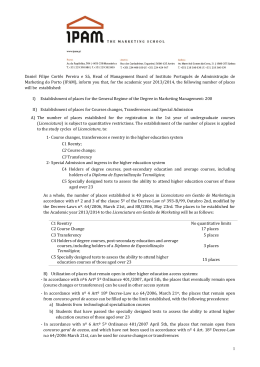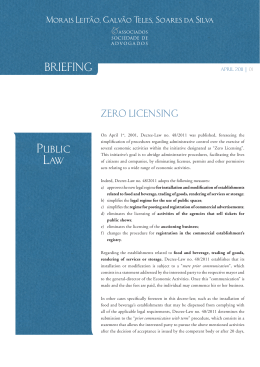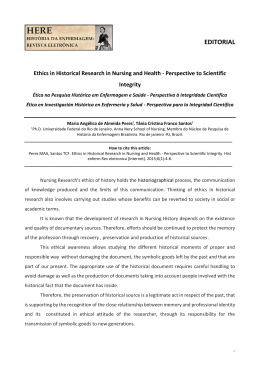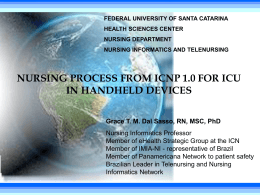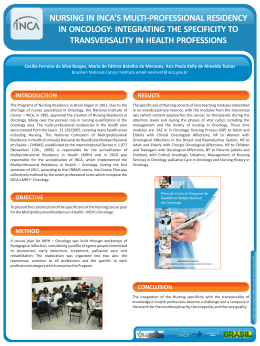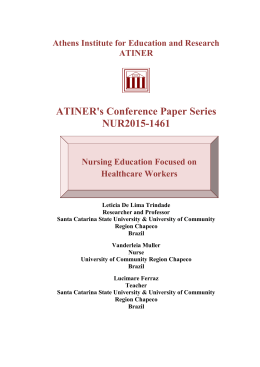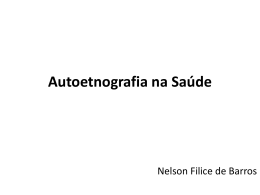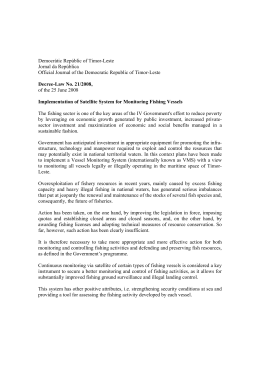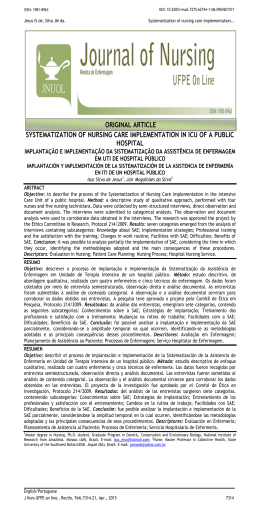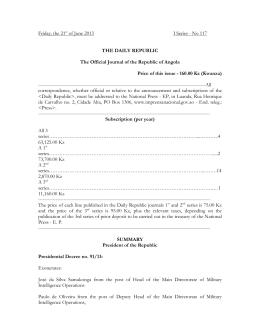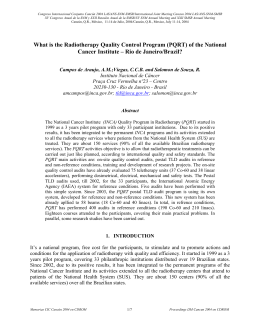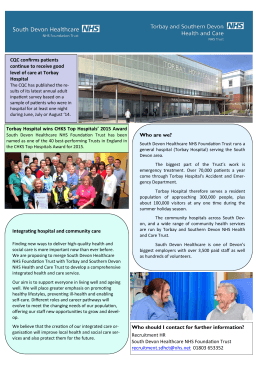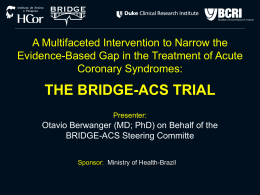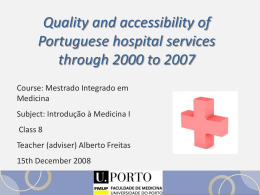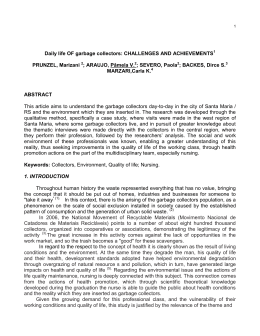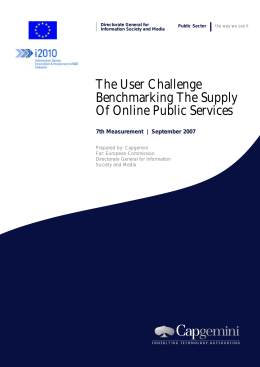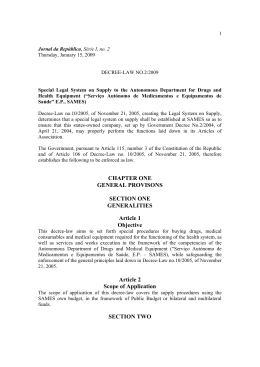DEMOCRATIC REPUBLIC OF TIMOR-LESTE GOVERNMENT ______________ DECREE-LAW NO. 18/2004 OF 1 DECEMBER 2004 ON PRIVATE HEALTH UNITS The health system of Timor-Leste, alongside the National Health Service institutions and in complement to it, comprises private health care institutions provided these are regulated and monitored by the State, thereby ensuring the plurality of the system and the freedom of choice of users. It is therefore essential to define the juridical regime applicable to private health units through a realistic and sustainable licensing and operating system that corresponds to the current socio-economic conditions but that ensures the necessary quality standards to safeguard the public and individual health of citizens. Pursuant to sections 115.1(e), 115.1(o) and 116(d) of the Constitution, the Government enacts the following that shall have the force of law: CHAPTER I General Provisions Article 1 Purpose The present decree-law shall regulate the licensing, operating and monitoring conditions of private health units. Article 2 Definitions 1. For purposes of the present decree-law, private health units shall mean any profitable or non-profitable institution, irrespective of their designation and legal form adopted, which provides medical, nursing, diagnostic or therapeutic care. 2. Private health units may assume, namely, the following modalities or types depending on the services provided: (a) Hospital: an establishment that provides differentiated health care with the possibility of admission; (b) Maternal-Child Clinic: an establishment that provides pre- and post-natal health care to parturients and newly born infants, with the possibility of admission; (c) Ambulatory Polyclinic Services: an establishment that provides several types of health care, namely, medical, nursing or maternal-child medical consultations, without the possibility of admission; (d) Medical Office: an establishment that primarily provides medical consultations; (e) Nursing Station: an establishment that provides nursing care, without the possibility of admission; (f) Dental Office: an establishment that performs prevention, diagnosis and treatment activities pertaining to abnormalities and diseases of the teeth, mouth and maxillaries; (g) Analysis Laboratory: an establishment that performs laboratory examinations of biological products; (h) Radiology and Radiotherapy Unit: an establishment where radiation, ultrasound or magnetic fields are used for diagnosis or therapeutic purposes. Article 3 Scope 1. All private health units shall be subject to the common rules laid down in Chapter II as well as to the specific rules of the modality to which they belong. 2. In addition to complying with the common rules, establishments providing services corresponding to the various modalities of private health units shall comply with the specific rules of the different modalities. 3. Private health units that do not fall under the modalities provided for in Article 2.2 above shall be subject to the common rules of Chapter I and to the specific rules of the modality or modalities of private health units whose services have more similarities with the services provided by the non-specifically regulated private health units. CHAPTER II Rules Common to All Private Health Units Section I Licensing of Private Health Units Article 4 Licensing 1. The operation of private health units shall be contingent upon the obtention of a license granted by the Permanent Secretary in accordance with the provisions of the present decree-law, which shall specify the types of services to be provided, their respective specialties as well as other specific conditions. 2 2. The licensing process shall be dealt with by the National Directorate of Health Policy and Planning and submitted to the Board of Directors for an opinion, in accordance with the provisions of the Organic Law of the Ministry of Health. Article 5 Applications License requests shall consist of an application, to be submitted to the National Directorate of Health Policy and Planning, indicating the type of private health unit to be licensed, its respective name and location, and attaching the following information: (a) Personal identification and taxpayer number of the applicant as well as his or her respective residence or head office; (b) Business, association or foundation registration certificate; (c) Proposed name of the private health unit; (d) Types of services or specialties to be provided; (e) Floor plan, project and descriptive memory of the facilities; (f) List of technical equipment; (g) Name of the technical director, along with his or her respective academic and professional background and the respective registration number with the Ministry of Health; (h) Staffing table, indicating the required academic and professional qualifications; (i) Other specific information required for the specific type of private health unit under consideration. Article 6 Licensing Conditions 1. Licensing conditions shall be contingent upon: (a) Checking the validity of the records; (b) Checking whether the location, characteristics of the premises and equipment are in line with the type of private health unit and with the specialised services to be provided; (c) Checking the academic and professional qualifications of the technical directorate and of the professionals contained in the staffing table. 2. The proposed name shall allow the immediate identification of the type of unit and shall be different from the name of other previously licensed establishments as well as from National Health Service institutions. 3. Medical offices shall not require a specific name. 4. The National Directorate of Health Policy and Planning shall conduct an inspection of the conditions laid down in item 1(b) above. 3 Article 7 License 1. Licenses shall be granted within a maximum period of 90 days, or 120 days in the case of clinics, to be counted from the date of the submission of the applications and they shall be valid for three years. 2. Licenses shall be renewable for three-year periods whenever the initial conditions are maintained and applications for renewal shall be made at least 60 days, or 90 days in the case of clinics, prior to its expiry. 3. Licenses shall be personal and non-transferrable, and any act of disposal, conveyance or cessation of exploration shall be previously communicated to the National Directorate of Health Policy and Planning. 4. Changes made to the technical directorate, to the physical structures as well as to the technical and other equipment, which alter the initial operating conditions of private health units, shall be communicated to the National Directorate of Health Policy and Planning. 5. The exercise of services and specialties not covered by the initial license shall require a new license to be requested in advance, indicating the relevant information for its granting. 6. The National Directorate of Health Policy and Planning shall keep an updated record of all licensed private health units. 7. Licensing fees shall be charged and these shall be established by a joint statute from the Ministers of Planning and Finance and of Health. Article 8 Dismissal Applications shall be dismissed whenever the requirements laid down in Articles 4, 5 and 6 are not fulfilled and applicants shall be notified of the respective grounds for dismissal for purposes of appeal, which shall be submitted to the Minister of Health within 20 days. Article 9 Suspension and Revocation 1. Licenses may be suspended or revoked whenever the facilities, material, human resources or operating conditions required by law, regulation, or leges artis give or may give rise to visibly poor health care provision. 2. Suspensions or revocations may be limited to autonomous services or to certain specialties of private health units whenever the remaining services ensure the necessary requirements for the provision of quality care, in which case the respective licenses shall be changed. 3. Where licenses have been suspended, resulting in the temporary inoperability, a reasonable period of time shall be allowed to enable the undertaking of the 4 necessary works, the purchasing of equipments or the recruitment of the personnel needed for the smooth operation of the establishment, under penalty of license revocation and compulsory closure of the establishment. 4. The lifting of suspensions and the re-opening of establishments whose licenses have been suspended shall be object of an application and may only be authorised following a new inspection once the proofs presented have been analysed. 5. Whenever serious dangers are posed for the users or for the public health and without prejudice to the possibility of a cautionary suspension or revocation of the private health unit license, final decisions on the suspension or revocation shall always be preceded by the application of administrative penalties in accordance with Section III. Article 10 Communications For record-keeping purposes, all decisions to grant, dismiss, renew, suspend, change or revoke licenses shall be communicated to the institution responsible for the commercial registry or to the competent entity responsible for the registration of associations and foundations. Section II Establishment and Operation of Private Health Units Article 11 Establishment 1. Private health units shall be located in salubrious and easily accessible environments with facilities for water supply, sanitation, collection and treatment of residues, power supply and telecommunications. 2. Where the public systems of water and power distribution, sanitation and residue collection systems cannot provide these services, private health units shall be equipped with the necessary alternate systems for the types of services to be provided and shall ensure their continuous operation in accordance with the existing general or specific technical rules. Article 12 Constructions Constructions shall observe the general rules in force and shall, in any event, offer safe and sterile conditions that are compatible with the services intended to be provided by the respective facilities, and the Minister of Health shall be responsible 5 for approving, by statute, the specific rules that apply to the various types of private health units. Article 13 Operation 1. Private health units shall respect every legal, technical and deontological rule applicable to their activities and shall provide quality health care in conditions of safety, in accordance with the leges artis. 2. It shall be incumbent upon the Minister of Health to approve, by statute, the manuals of good practise of the activities provided for in the present decree-law, and, where necessary, the health activities or services that the different health units may provide depending on the professional qualifications or availability of equipment. Article 14 Assistance from Other Private Health Units Private health units may only resort to the health services of other private health units when the latter are registered and licensed in accordance with the applicable legislation. Article 15 Technical Directorate and Staff 1. Technical directors of private health units shall be responsible for their management and operation and for checking the service quality provided by the different staffs and they shall possess the academic and professional qualifications for each modality or type of private health unit referred to in the ensuing chapters. 2. Technical directors shall remain in their respective units during regular working hours and shall be substituted, during their impediments, by qualified professionals with appropriate training. 3. Health professionals providing services, in any capacity, in private health clinics shall: (a) Possess academic and professional qualifications appropriate to the activities performed; (b) Be registered as health professionals with the Ministry of Health, in accordance with the law in force. 4. Technical directors shall verify compliance with the conditions referred to in item 3 above pertaining to health professionals and shall ensure that the number of health professionals allows the unit to operate smoothly and that quality service is provided to users. Article 16 6 Information to Patients Information about the staff, divided according to areas of specialty, hours of operation, price listing, and the book of complaints shall be affixed. Article 17 Records 1. It shall be mandatory to keep a registry of all patients assisted, with the respective appointment, admission and discharge dates, where relevant, including exams and treatment performed and the identification of the persons responsible for determining and performing such exams and treatments. 2. Without prejudice to the patients’ right to information regarding their own condition and to the power of control of the Office of Health Inspection, the registry of medical files shall be confidential. Article 18 Insurance Civil responsibility for the exercise of private health unit activities shall be transferred to insurance entities as soon as possible in accordance with the necessary legislative, administrative and technical conditions. Section III Monitoring of Private Health Units Article 19 Competence 1. The Office of Health Inspection, in collaboration with the National Directorate of Health Policy and Planning and with other institutions of the Ministry of Health, shall be responsible for monitoring private health units, and may resort to other qualified experts for relevant specific aspects whenever necessary. 2. With a view to exercising its competencies and safeguarding the public health, the Office of Inspection and the National Directorate of Health Policy and Planning may: (a) Have free access to all private health unit facilities; (b) Have free access to all documents belonging to private health units; (c) Conduct the necessary observations and analyses; (d) Temporarily seize defective materials or equipment that undermine the public health or safety of users; 7 (e) Temporarily close non-licensed establishments, or their autonomous parts, or establishments operating in serious violation of the applicable regulatory rules and undermining the public health or the safety of users. Article 20 Administrative Penalties and Fines The following shall constitute behaviours punishable with the following fines: (a) The operation of any private health unit by whoever is not a holder of the respective valid license, in violation of the provisions of Articles 4 and 9 – the minimum fine shall be of US$1,000 and the maximum of US$3,000; (b) The provision of services or the exercise of specialties not covered by the valid license, in violation of Article 7.5 – the minimum fine shall be of US$500 and the maximum of US$1,500; (c) The failure to provide the information provided for in Articles 7.3 and 7.4 and the breach of the provisions of Article 14 – the minimum fine shall be of US$200 and the maximum of US$500; (d) Private health units operating in manifestly poor conditions as regards the provision of care and treatment, in violation of the principles of good practise and of the “leges artis” – the minimum fine shall be of US$1,000 and the maximum of US$3,000; (e) The lack of the required material and human resources, in accordance with the present decree-law or with its regulation, or the failure to comply with general or special rules pertaining to the facilities, equipment, organisation, operation and performance provided for therein – the minimum fine shall be of US$500 and the maximum of US$2,000; (f) The failure to comply with the rules provided for in Article 46 on the protection and safety against radiations – the minimum fine shall be of US$1,000 and the maximum of US$2,000. Article 21 Offences and Penalties 1. Offences against the provisions laid down in the present decree-law and in complementary legislation shall have the nature of administrative penalties except if they constitute crimes, in which case they shall be punishable in accordance with the penal law. 2. Negligence and attempt of negligence shall always be punishable. 3. The application of fines shall be graduated according to the gravity of the offence and the danger it poses to public health, the degree of culpability and the economic status of the offender. 8 4. The maximum and minimum limits of the fines shall be reduced to half where applicable to individuals. 5. The following penalties may be applied simultaneously with the fine according to the degree of culpability of the offender, the gravity of the offence and the danger it may pose to the public health: (a) Loss of objects belonging to offenders; (b) Closure of the facility or the closure of an autonomous part of it; (c) Suspension or revocation of the license; (d) Prohibition, for a maximum of two years, to exercise the activities provided for in the present decree-law. 6. Whenever a disciplinary breach committed by any health professional is detected, the Disciplinary Board of the Health Professions shall be informed of it and given the evidence collected. Article 22 Procedures 1. A report shall be prepared in connection with each and every detected offence, which shall attest to the witnessed acts until proof to the contrary is produced, and such report shall serve as the basis for initiating a proceeding in relation to the offence. 2. The report of the offence shall be submitted to the Office of Health Inspection, as the competent entity, which shall investigate the case in conjunction with the National Directorate of Health Policy and Planning. 3. The offender shall be notified of the acts that constitute the offence, of the breached legislation, of the applicable penalties and of the deadline and venue for presenting his or her defence, as well as of the possibility of voluntary payment of the fine, in its minimum limit, and of the consequences of failure to pay such fine. 4. The offender may, within 20 days, present his or her defence in writing or voluntarily pay the fine, and may also present his or her defence only in relation to the gravity of the offence and the accumulated accessory penalties, once the voluntary payment has been made. 5. The competence to apply fines and accessory penalties rests with the Minister of Health, against whose final decision a contentious appeal may be lodged within 30 days. Article 23 Disposal of Fines Seventy-five percent of the proceeds arising from fines shall accrue on behalf of the state coffers and 25% of it shall accrue on behalf of a health fund to be regulated by specific decree. 9 CHAPTER III Hospitals Section I Facilities Article 24 Entrances Hospitals shall have different entrances for the patients, for the public and for the services and shall allow the easy transit and movement of ambulances, stretchers and wheel chairs. Article 25 Facilities and Minimum Equipment The following shall be established by statute of the Minister of Health: (a) The minimum services that hospitals shall provide as well as their respective areas, equipment and characteristics; (b) The minimum areas, characteristics and equipment of the various services that are part of the hospital. Section II General Equipment Article 26 General Principle Hospitals shall be equipped with general equipment enabling adequate service and comfort conditions that are in line with the minimum quality and safety standards, in accordance with the ensuing articles. Article 27 Energy Supply in Emergency Situations Without prejudice to the emergency lighting system, hospitals shall be equipped with an emergency generator, which shall operate automatically whenever network power failure occurs, and they shall secure: (a) The general lighting and sockets for theatres as well as for the labour, recovery, intensive care and emergency rooms; (b) Medicinal and vacuum compressed air facilities; (c) Telecommunications facility; (d) Nurse call system; 10 (e) Refrigeration facilities. Article 28 Safety of Power Installations In theatres as well as in intensive care and neonatology units, the neutral point connection shall be of the insulated neutral type (IT), which shall ensure that the power is distributed equally between the metal parts; a busbar of equally distributed power shall connect all accessible metal parts to the various equipment, and they shall also have a monitoring system, equipped with an alarm, of the isolation of the electrical feeding network. Article 29 Medicinal and Breathing Gases Hospitals shall be equipped with oxygen and breathing facilities. Article 30 Disinfection and Sterilisation 1. Hospitals shall be equipped with a steam autoclave, whose capacity shall be commensurate with the dimension of the prevacuum cycle, to ensure that the used materials and equipment they need are disinfected and sterilised and, in the event they possess theatres and delivery rooms, they shall be equipped with an instrument washing machine. 2. Disinfection and sterilisation may be carried by subcontractors. Article 31 Hospital Residues Hospitals or their subcontractors shall be responsible for observing the existing rules on the storage, treatment and elimination of hospital residues and they shall, in any event, ensure the destruction, by incineration or by another appropriate means, of contaminated residues or of residues susceptible to contamination in a way that does not endanger the public health and the environment. Article 32 Food Hospitals or their subcontractors shall provide food to inpatients and, where necessary, to their staff and they shall be equipped with the appropriate facilities and equipment, including a dish washing machine with a programme for disinfection, in the event of hospitalisation of infectious patients. 11 Article 33 Laundry Hospitals or their subcontractors shall provide the necessary clothing and shall ensure that used clothing are washed and treated and, when caring for infectious patients, they shall be equipped with the appropriate facilities and equipment, including a laundry machine with a programme for disinfection. Article 34 Refrigeration Equipment Without prejudice to the refrigeration equipment essential to the fulfillment of the provision of Article 32, hospitals providing emergency, surgical or obstetrician health services shall be equipped with their own refrigeration equipment, which shall have an appropriate monitoring system for the conservation of blood. Article 35 Water Tank Hospitals shall be equipped with water tanks, filters and compressors whenever the managing entities of the public water distribution systems fail to secure water supply in voluminous quantities and in favourable pressure conditions, and the water tanks, filters and compressors shall undergo sanitary control in order to ensure the compatibility of the water with its intended use. Article 36 Treatment of Residual Waters Residual waters shall undergo appropriate treatment in accordance with the legislation in force, and hospitals shall, in any event, be equipped with a disinfection treatment system of contaminated residual waters originating from the emergency services, hospitalisation of infectious patients and waste from sterilisation equipment. Section III Organisation and Operation Article 37 Technical Directorate 1. Clinical directors of hospitals shall be medical doctors. 12 2. Clinical directors shall be responsible for the harmonious co-ordination and operation of the assistance services as well as for the quality and improvement of health care provided therein, in accordance with the ethical and deontological rules and the leges artis. 3. Hospitals shall also be staffed with technicians who shall possess appropriate qualifications and training in the medical, nursing and pharmaceutical fields. Article 38 Staff 1. Hospitals shall be staffed with duly qualified and properly trained medical, nursing and pharmaceutical staffs in order to provide the intended health care. 2. It shall be mandatory for the nursing staff to be physically present at all times. 3. A medical doctor shall be physically present, at all times, whenever emergency and intensive care services exist. 4. Hospitals that provide diagnosis, therapeutic and radiation treatments shall secure collaboration from the health professionals as provided for in the respective chapters of the present decree-law. CHAPTER IV Maternal-Child Clinics Article 39 Facilities and Equipment The rules laid down in Sections I and II of Chapter III shall apply to maternal-child clinics. Article 40 Technical Directorate 1. Technical directors of maternal-child clinics shall be nurse midwives. 2. Technical directors shall be responsible for the harmonious co-ordination and operation of the assistance services as well as for the quality and improvement of health care provided therein, in accordance with the ethical and deontological rules, with the leges artis and with the manual of good practises. Article 41 Staff 1. Maternal-child clinics shall be staffed with duly qualified and properly trained nursing staff so as to provide maternal-child nursing care. 2. It shall be mandatory for the nursing staff to be physically present at all times. 13 CHAPTER V Ambulatory Polyclinic Services Article 42 Facilities, Equipment and Staff Ambulatory polyclinic services shall be equipped with facilities, equipment and staff necessary for medical offices, nursing stations and dental offices, in accordance with the kinds of ambulatory services they provide. Article 43 Clinical Directorate Where polyclinics provide medical examinations, the clinical director of the ambulatory polyclinic services shall be a medical doctor, and, where polyclinics provide pre- and post-natal assistance, the clinical director of the ambulatory polyclinic services shall be a nurse midwife. CHAPTER VI Medical Offices Article 44 Facilities and Equipment Medical offices shall operate in areas exclusively designed for such purpose and shall be equipped with waiting, observation, treatment and sterilisation rooms as well as with the appropriate equipment for the specialty exercised, in accordance with the leges artis. Article 45 Clinical Responsibility Medical doctors shall be responsible for the quality of activities and exams performed, in accordance with the ethical and deontological rules and with the leges artis. CHAPTER VII Nursing Stations Article 46 Facilities and Equipment 14 1. Nursing stations shall operate in areas exclusively designed for such purpose and shall be equipped with waiting, observation, treatment and sterilisation rooms. 2. Nursing stations shall be equipped with the equipment laid down in the statute of the Ministry of Health and shall, in any event, ensure that the necessary materials and equipment used are disinfected and sterilised and that the contaminated residues or residues susceptible to contamination are treated and eliminated either by incineration or by another appropriate means. Article 47 Technical Directorate and Staff 1. Technical directors of nursing stations shall be nurses. 2. Technical directors shall be responsible for the operation of nursing stations and for the quality of activities and exams performed therein, in accordance with the ethical and deontological rules and with the manual of good practises. 3. Nursing stations shall be staffed with duly qualified nursing or support staff, the number of which shall be commensurate with the workload. CHAPTER VIII Dental Offices Section I Facilities and Equipment Article 48 Facilities Dental offices shall operate in areas exclusively designed for such purpose and shall be equipped with waiting, clinical and sterilisation rooms. Article 49 Minimum Equipment 1. Dental offices shall be equipped with the minimum number of regular and emergency equipment and shall possess the characteristics laid down in the statute of the Ministry of Health so as to secure the technical quality of the treatments performed therein and they shall, in any event, be equipped with: (a) Disinfection and sterilisation equipment; (b) A system to treat and control water quality; (c) An own or subcontracted system to ensure the destruction, either by incineration or by another appropriate means, of contaminated residues or residues susceptible to contamination; 15 (d) A system to treat contaminated residual waters or waters susceptible to contamination. 2. The installation and use of x-ray equipment shall observe the technical rules in force and with the rules laid down in Article 59. Section II Organisation and Operation Article 50 Clinical Directorate 1. Clinical directors of dental offices shall possess qualifications that are compatible with the specialties performed therein and they shall be dentists or dental nurses. 2. Clinical directors shall be responsible for the operation of dental offices and for the quality of the activities and exams performed therein, in accordance with the ethical and deontological rules and with the manual of good practise. Article 51 Staff Dental offices shall be staffed with duly qualified technical staff. CHAPTER IX Analysis Laboratory Section I Facilities and Equipment Article 52 Facilities Laboratories shall operate in areas exclusively designed for such purpose and shall be equipped with waiting, collection and laboratory rooms. Article 53 Minimum Equipment Laboratories shall be equipped with the minimum number of equipment and shall possess the characteristics laid down in the statute of the Minister of Health so as to secure the technical quality of the exams performed therein, and they shall, in any event, be equipped with: 16 (a) (b) (c) (d) Disinfection and sterilisation equipment; Refrigeration equipment; A system to treat and control water quality; An own or subcontracted system to ensure the destruction, either by incineration or by another appropriate means, of contaminated residues or residues susceptible to contamination, and this shall be accomplished in such as way so as not to endanger the public health and the environment; (e) A system to treat contaminated residual waters or waters susceptible to contamination. Section II Organisation and Operation Article 54 Technical Directorate 1. Technical directors of laboratories shall possess qualifications that are compatible with the specialties or equivalencies performed, and shall, at least, be analysis technicians. 2. Technical directors shall be responsible for the operation of the laboratory and for the quality of the activities and exams performed therein, in accordance with the ethical and deontological rules and with the manual of good practises. Article 55 Staff Laboratories shall be staffed with duly qualified technical staff, the number of which shall be commensurate with the workload and with the specialties for which they are licensed. Article 56 Collection Stations Where operating licenses include the collection of specimen at home or in collection stations, the technical directors shall ensure that duly qualified technicians collect the samples and that the conditioning and transport are undertaken in appropriate thermo-stabilisation conditions. CHAPTER X Radiology and Radiotherapy Units Section I Facilities and Equipment Article 57 17 Facilities Radiology and radiotherapy units shall operate in areas exclusively designed for such purpose and shall be equipped with waiting, radio-diagnosis or radiotherapy, and developing rooms. Article 58 Equipment Radiology and radiotherapy units shall be equipped with the minimum number of equipment and shall possess the technical specifications laid down in statute by the Ministry of Health so as to secure the technical quality of the exams performed. Article 59 Radiation Safety System Without prejudice to the approval of the manual of good practises provided for in Article 13.2, while a radiation safety system is not in place the Minister of Health shall be responsible for approving, by statute, a radiation safety system for the radiology and radiotherapy units, which shall provide for: (a) An authorisation from the National Directorate of Health Care to import, install and operate radiation-emitting equipment; (b) A system to transport, store and eliminate residues and radioactive materials; (c) A safety programme in accordance with the use of such equipment; (d) A surveillance, monitoring and assistance programme; (e) An action programme to deal with emergency situations; (f) The necessary specialised training to health professionals using such equipment. Section II Organisation and Operation Article 60 Technical Directorate 1. Clinical directors of radiology and radiotherapy units shall be radiologists or radiotherapists or radiology or radiotherapy technicians. 2. Clinical directors shall be responsible for the operation of the radiology or radiotherapy units as well as for the quality of exams and therapeutic treatments performed therein, in accordance with the ethical and deontological rules, with the leges artis, with the manual of good practises and with the radiation safety rules. 18 Article 61 Staff Radiology and radiotherapy units shall be staffed with duly qualified technical staff, the number of which shall be commensurate with the workload and specialties for which they are licensed. CHAPTER XI Final and Transitional Provisions Article 62 Regulation The Minister of Health shall be responsible for the regulation of the present decreelaw. Article 63 Provisional Clauses 1. Private health units in operation on the date of the entry into force of the present decree-law shall, within a period of six months to be counted from the date of the entry into force of the present decree-law, require operating licenses, under penalty of closure and application of penalties provided for in Articles 20 and 23. 2. The requirements laid down in the present decree-law shall not be immediately required for private health units that, on the date of the entry into force of the present decree-law, have already been operating for over one year, and the licensing entity shall conduct a case-by-case analysis of the existing conditions, establish a reasonable time frame to adjust to the legally required conditions, or propose its acceptance to the Minister of Health in a judicious and reasoned manner. Article 64 Entry into Force The present decree-law shall enter into force eight months after its publication. Approved by the Council of Ministers on 15 November 2004. The Prime Minister [Signed] Mari Bim Amude Alkatiri 19 The Minister of Health [Signed] Rui Maria de Araujo Promulgated on 23 November 2004. To be published. The President of the Republic [Signed] Kay Rala Xanana Gusmao 20
Download
